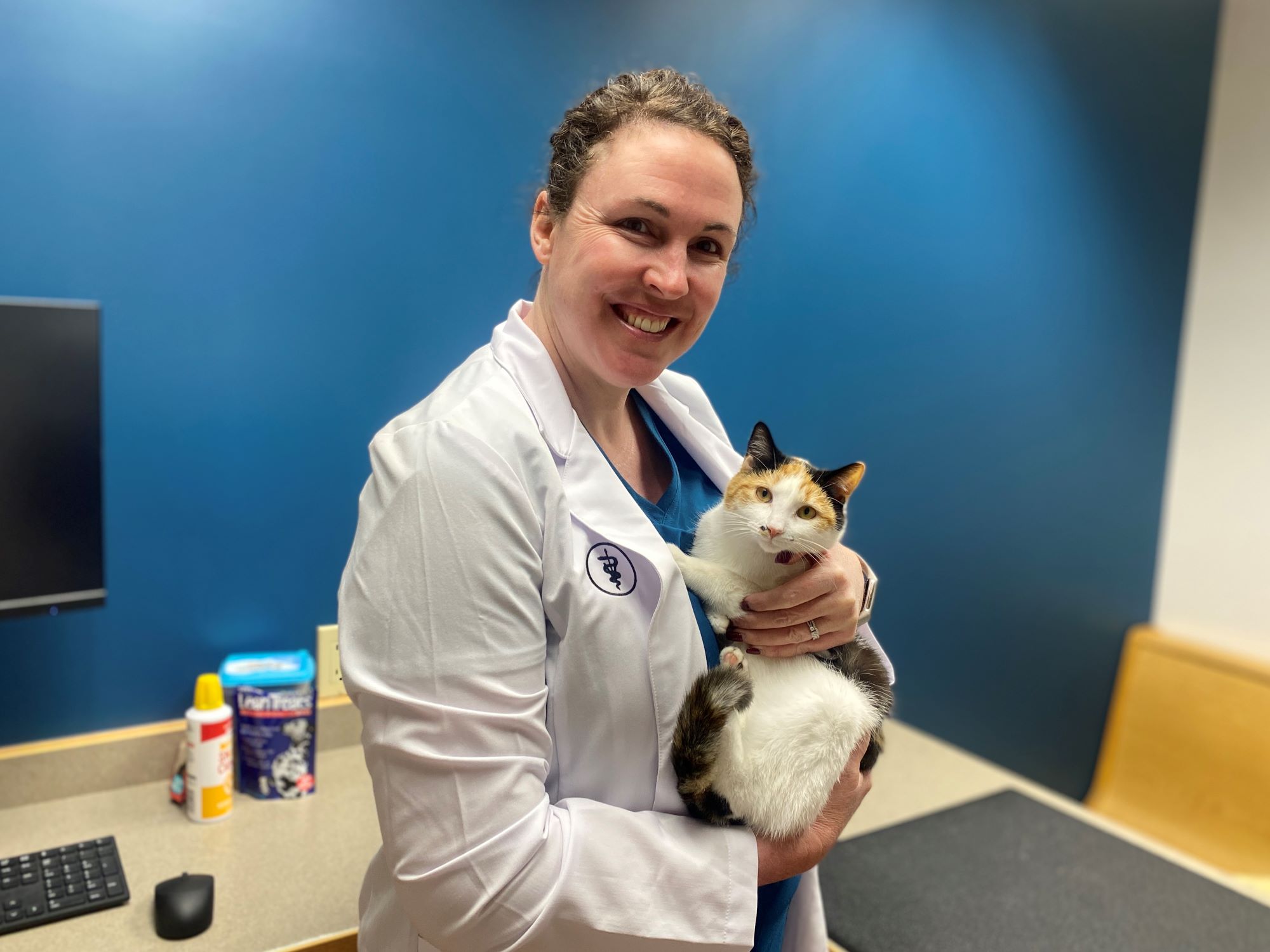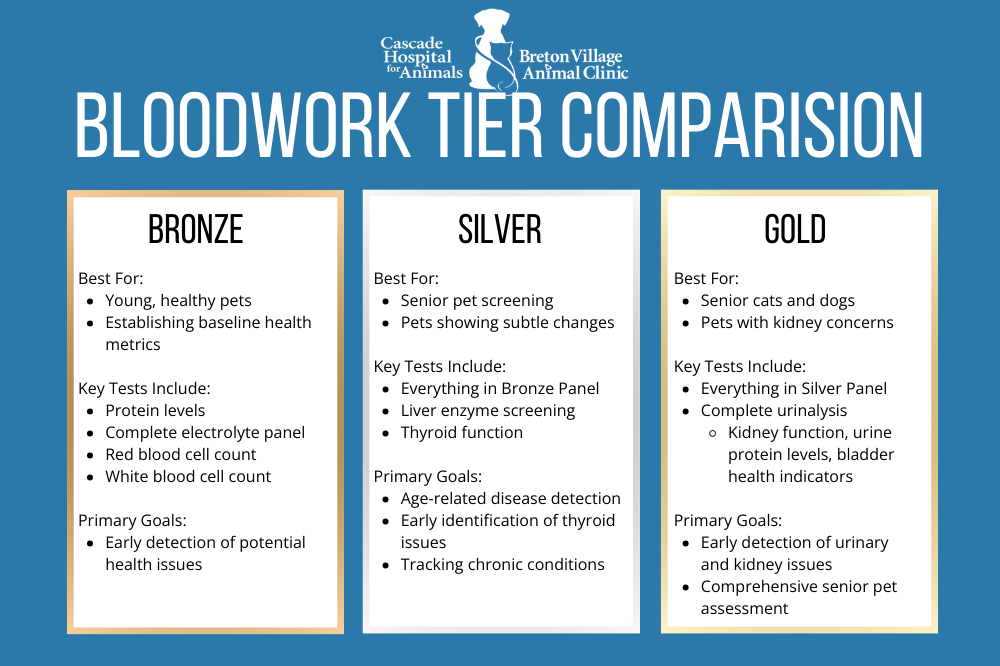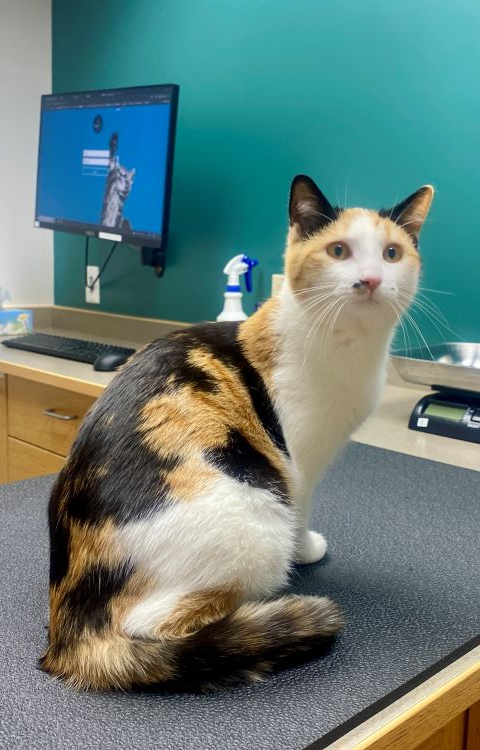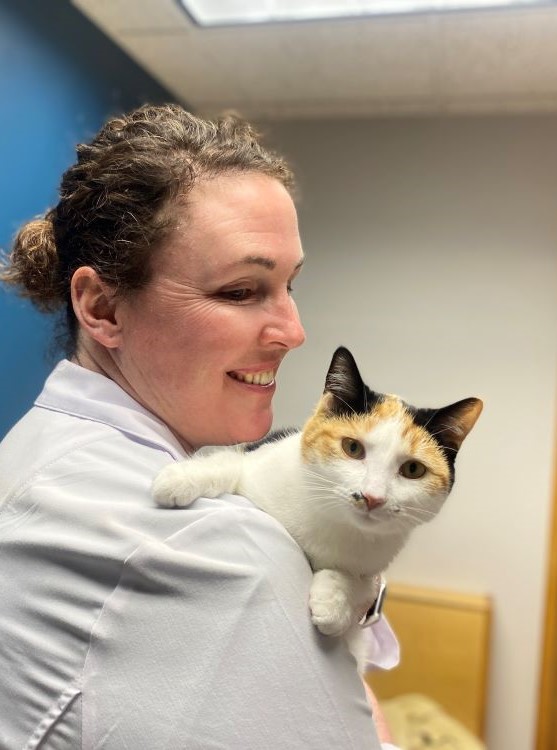
A Complete Guide to Pet Bloodwork at Cascade Hospital for Animals
Proactive pet healthcare that helps your companions live their longest, healthiest lives is our top priority at Cascade Hospital for Animals. One of the most valuable tools in our preventive care arsenal is comprehensive bloodwork. Dr. Becky Schaffer offers her expertise to explain how routine blood panels can help keep your furry family members healthy and thriving through every stage of life.
Our Three-Tiered Approach to Bloodwork
We offer three comprehensive bloodwork panels, each designed to meet different needs and life stages of your pet:
"The Bronze panel gives us a broad overview of major organ function, protein level, electrolytes, and red/white blood cell counts," explains Dr. Schaffer. "This is most appropriate for young patients that are not having any health issues." This foundational panel helps us establish baseline health metrics and catch any abnormalities early, potentially preventing illness before it occurs.
The Silver panel builds on this foundation by including additional liver enzymes and thyroid function tests. This makes it particularly valuable for senior pet screening, as it helps us identify age-related health changes before they become serious problems.
Our Gold panel represents our most comprehensive screening option, adding urinalysis to the Silver panel's extensive testing array. "This is very valuable in identifying or monitoring kidney disease," Dr. Schaffer notes. "The Gold panel is most commonly used as a Senior screening panel in aging cats or dogs." This thorough screening is especially crucial for older pets who may be more susceptible to kidney-related issues.

When to Start Routine Bloodwork and Why
Dr. Schaffer recommends beginning bloodwork early in your pet's life. The first panel should be conducted at 6-9 months of age, typically before spaying or neutering. After that, annual testing becomes the standard for healthy pets, with more frequent testing if health issues arise.
The timing of these tests isn't arbitrary - it's carefully planned to coincide with crucial life stages and common health risks. Regular screening allows us to:
- Establish baseline health parameters when your pet is young and healthy
- Monitor changes in organ function over time
- Detect subtle health variations before they manifest as visible symptoms
- Adjust preventive care strategies based on individual health trends
The Power of Early Detection: Real Success Stories
The value of routine bloodwork cannot be overstated, and real-world examples prove this daily in our practice. Dr. Schaffer shares a compelling example where pre-surgical bloodwork in a seemingly healthy one-year-old dog revealed mildly elevated liver values. Further testing uncovered a portosystemic shunt - an abnormal blood flow through the liver. This early detection allowed for appropriate management and modification of the anesthetic protocol for the dog's upcoming surgery, potentially preventing serious complications.
Beyond the Physical Exam: Why Bloodwork Matters
Annual lab work complements physical examinations in crucial ways. As Dr. Schaffer explains, "It reveals what is happening internally, where we cannot evaluate as veterinarians. It is impossible for me to assess kidney function on examination alone, so I rely on lab work to tell me how the kidneys are working."
This internal view can help us detect various conditions before physical symptoms appear, including:
- Kidney disease
- Congenital liver issues
- Addison's disease (under-active adrenal glands)
- Immune-mediated blood cell disorders
- Early stages of organ dysfunction
Wellness vs. Diagnostic Bloodwork: Understanding the Difference
 When a pet is showing symptoms, our approach to bloodwork shifts slightly. While we use similar panels, the testing process becomes more immediate. "When a patient is sick, the lab work is more commonly run in-clinic, rather than sent out to a diagnostic lab," Dr. Schaffer notes. "This allows us to get results within 20-30 minutes." Additional specialized tests, such as pancreatic inflammation screening, may be added based on specific symptoms.
When a pet is showing symptoms, our approach to bloodwork shifts slightly. While we use similar panels, the testing process becomes more immediate. "When a patient is sick, the lab work is more commonly run in-clinic, rather than sent out to a diagnostic lab," Dr. Schaffer notes. "This allows us to get results within 20-30 minutes." Additional specialized tests, such as pancreatic inflammation screening, may be added based on specific symptoms.
Common Misconceptions and Important Truths
One prevalent misconception that Dr. Schaffer addresses is the belief that bloodwork can definitively detect cancer. "Unfortunately, there is not one blood test that tells us if cancer is present," she notes. "In a lot of cases, lab work will be perfectly normal if there is cancer somewhere in the body." Additional testing, such as imaging through x-rays, ultrasound, or CT scans, is often necessary for cancer diagnosis.
The Blood Collection Process: What to Expect
The blood drawing process at Cascade Hospital for Animals is designed to be as comfortable and stress-free as possible for your pet.
Here's what to expect:
- The procedure typically takes 5-15 minutes in our treatment area
- Blood is usually collected from the jugular vein in the neck or from leg veins
- We use rubbing alcohol to prepare the area, so your pet may have a wet spot afterward
- Occasionally, a temporary wrap may be needed for 10-15 minutes if there's minor bleeding
- To help prepare your pet, Dr. Schaffer recommends training them to:
- Sit comfortably with their head positioned upward
- Be at ease with having their feet touched
- Remain calm during gentle restraint
Investment in Your Pet's Long-term Health
While routine bloodwork requires an initial investment, its value extends far beyond immediate health assessment. Early detection of conditions like hyperthyroidism in cats can lead to normal life expectancy with proper treatment. Without regular screening, such conditions might go unnoticed until they significantly impact your pet's quality of life.
Dr. Schaffer emphasizes that while dramatic early catches of life-threatening conditions are relatively rare, the real value lies in managing chronic conditions: "More often we identify a chronic condition like kidney disease and can make changes (diet, medications, etc) to help keep the pet feeling good because we know the disease is there earlier."
Taking the Next Step
 Through our comprehensive bloodwork panels, we at Cascade Hospital for Animals can monitor your pet's internal health in ways that physical examinations alone cannot reveal. It's an essential part of our commitment to providing the highest standard of veterinary care for your beloved pets.
Through our comprehensive bloodwork panels, we at Cascade Hospital for Animals can monitor your pet's internal health in ways that physical examinations alone cannot reveal. It's an essential part of our commitment to providing the highest standard of veterinary care for your beloved pets.
Regular bloodwork isn't just a test - it's an investment in your pet's future, providing peace of mind and the opportunity for early intervention when needed. To schedule your pet's bloodwork or learn more about which panel is right for your companion, contact Cascade Hospital for Animals today.
Your pet's health is our priority, and we're here to help you make informed decisions about their preventive care needs. Let's work together to give your furry family member the best possible chance at a long, healthy life.
Located in the heart of West Michigan, serving Ada, Cascade, Forest Hills, and the greater Grand Rapids area, Cascade Hospital for Animals and Breton Village Animal Clinic are trusted havens for vet care. Reach out today to schedule a comprehensive physical examination and bloodwork for your pet.



